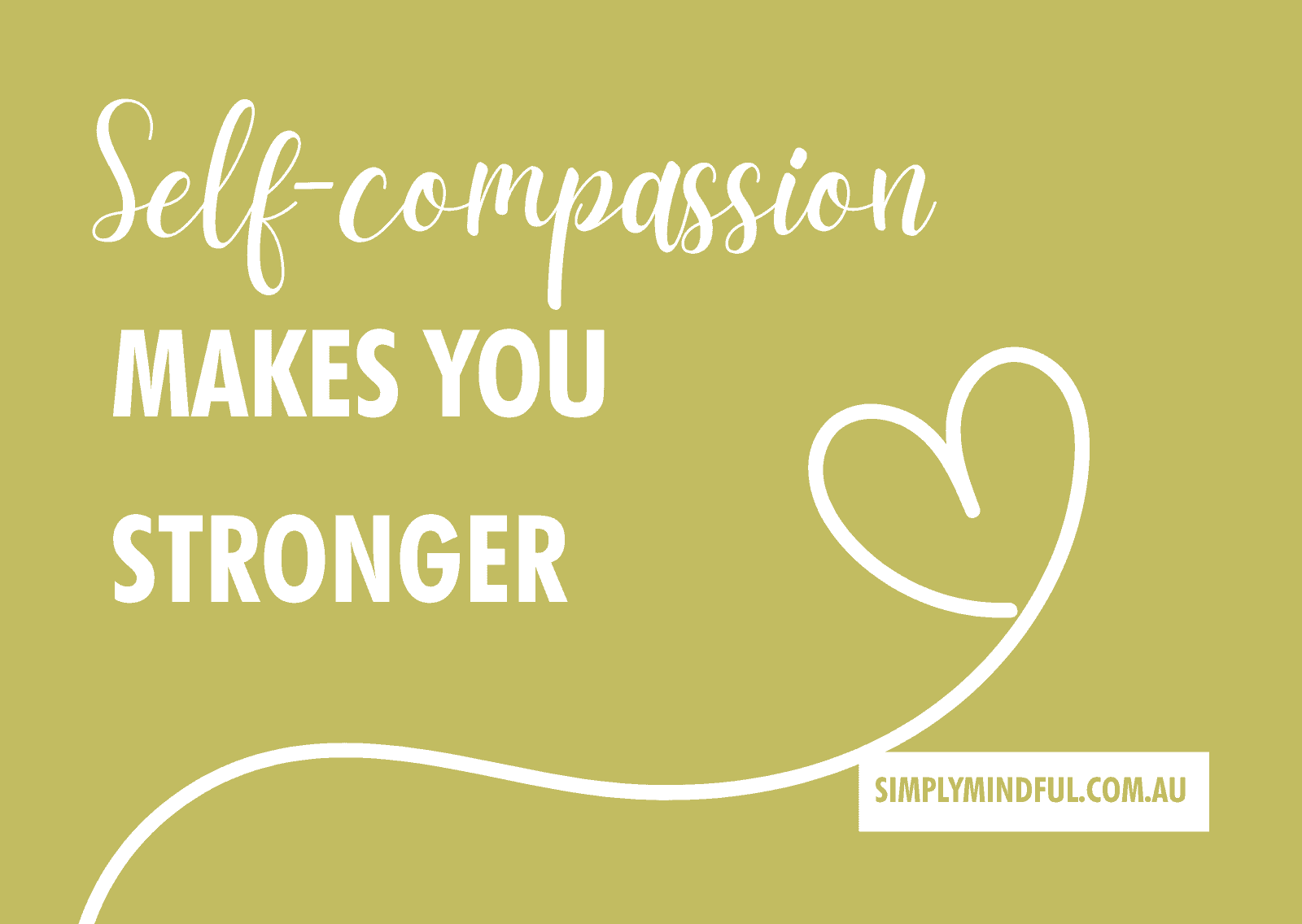
Have you ever wondered if self-compassion has any practical benefits?
Peer reviewed research shows that people who practice self-compassion are generally:
- more emotionally resilient
- more motivated to achieve their goals
- happier and healthier
- have more compassionate and satisfying relationships with others
Self-compassion radically changes our relationship with ourselves. It resources us from the inside out with a sense of support, which translates into feeling safer, more okay in ourselves and more connected. It trains us to truly meet ourselves — including in our most difficult moments — with the kindness, understanding and love that we would bring to a dear friend or vulnerable child.

Self-compassion helps us to let go of unhealthy, unrealistic or harmful expectations and learn true self-acceptance.
How? Self-compassion practices help us to learn how to meet ourselves with a constructive, supportive inner voice rather than a harsh, judgemental or critical inner voice. This is a practical way of transforming patterns learned from previous life experiences which now limit or harm us.
Self-compassion transforms our inner world as we practice it. In neuropsychological terms, it helps us to practice responding to ourselves differently. Over time new neural pathways develop in the brain which change our inner talk, perceptions of ourselves and the way we experience life.
This brain training literally helps us to feel more at home in our own skin, safer, more supported and more connected. The practice builds inner resources which are particularly helpful when facing difficulties and pressures.
This means we become less defensive, engage in less avoidant behaviours and can relax into being present. When we can open and meet our own needs in this way it is easier to address difficulties and move through hurt and pain. We do not need to reject parts of ourselves in order to be acceptable, and we can increasingly accept and even enjoy being who we are and being alive.
We learn to work with our rough edges and failings in a more constructive supportive way, knowing that our difficulties and failings as human beings, and our beauty, love and goodness are not mutually exclusive.
Learn more about the 6-week Self-compassion course or check upcoming course dates
Sources:
Breines, JG & Chen S (2012) Self-compassion increases self-improvement motivation, Personality and Social Psychology Bulletin, 38, 1133-1143
Hollis-Walker & Colosimo, 2011, Mindfulness, self-compassion and happiness in non-meditators: a theoretical and empirical examination. Personality and Individual Differences 50: 222-227
Neff, Rude & Kirkpatrick 2007, An examination of self-compassion in relation to positive psychological functioning and personality traits. Journal of Research in Personality, 41, 908-916
Thompson B & Waltz J (2008), Self-compassion and PTSD symptom severity, Journal of Traumatic Stress, 21, 556-558


